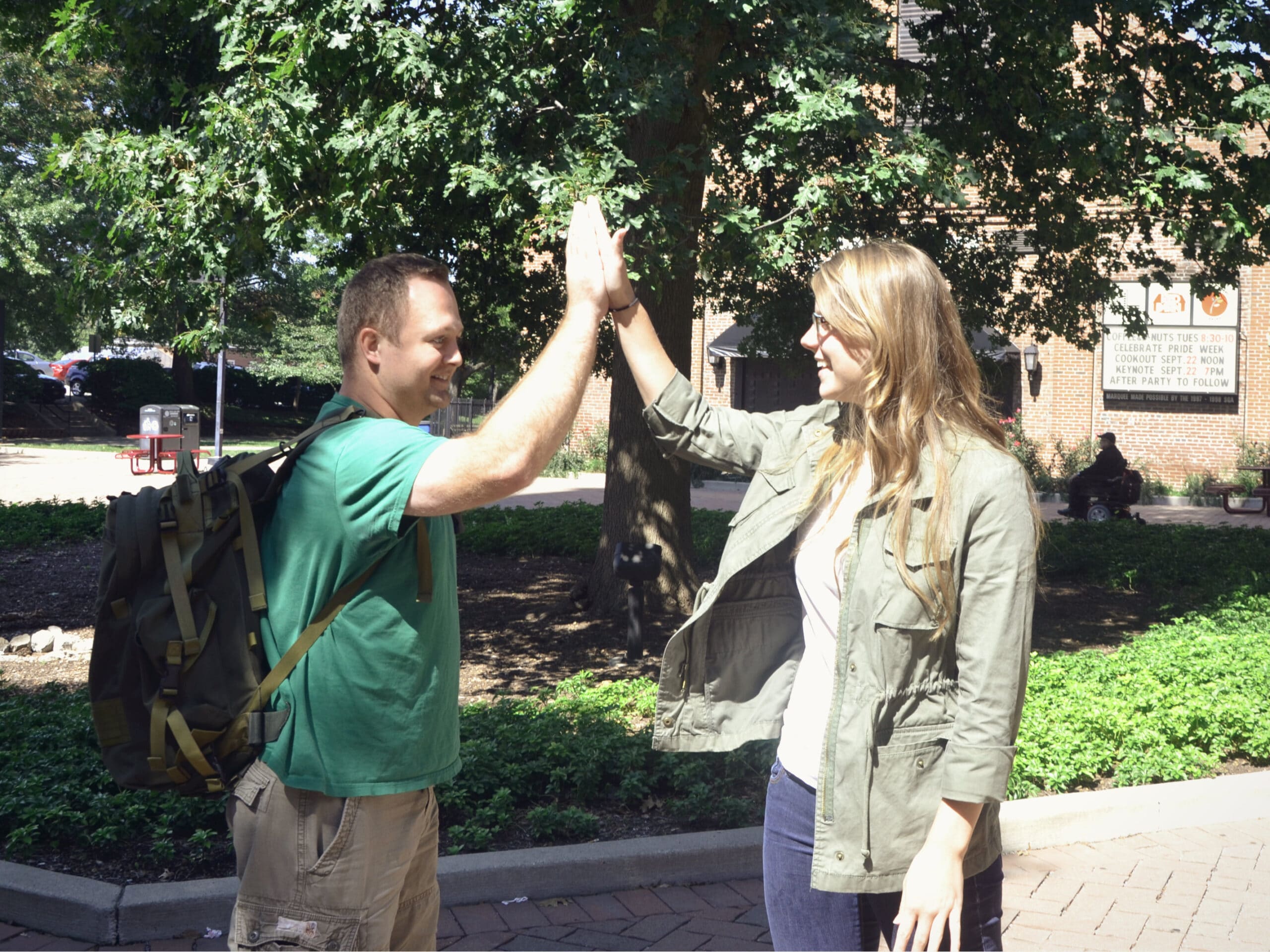Has the thought ever occurred to you that someone you may have sat next to in a class could qualify as a parent, or even a grandparent?! A variety of students attend the University of Louisville, including adult students (ages 22 and up). U of L offers learning opportunities for students of all backgrounds, ethnicities, and, of course, all ages.
With its origins as a commuter school founded in 1798, it’s no wonder students find this university appealing, even those that have more years behind them than the average student. Since Louisville isn’t considered a “college town”, it allows adult students who have other priorities to attend school while have the capability of living their life simultaneously in the same city.
An array of different reasons exist as to why adults choose to enroll in college including financial credentials, both intrinsic and extrinsic motivations, family priorities, etc. When it comes to financial aid, scholarships are available for those advanced in their years. The University of Louisville provides five scholarships and grants aimed directly for adult’s seeking out college education. The Community Foundation of Louisville itself administers over 80 scholarships specifically designed for this demographic.
Several students of all ages begin at Jefferson Community and Technical College for prerequisite and general education requirements and then transfer to U of L once they’ve completed those courses. Angela Green, 37, with a major in elementary education, followed this route for her college career. After completing previous education at JCTC, she was working for U of L. “I really wanted to use my tuition remission. I also wanted to make a difference in the world,” she said regarding her motivation to transfer and advance her education.
The application process is comprised of four different routes for adult students wanting to pursue a college education on the Belknap Campus. These depend on how many hours accumulated at previous schools, along with the purpose for attending. For example, if a student is wanting to continue educating themselves as a non-degree student, they have a different process to complete, than those students interested in earning a degree who have more or less than 24 transferable credits.
Once adult students are accepted, their experience in the classroom differs from that of younger students. “I believe I see things as a realist. In class, students that have limited adult responsibilities or experiences seem to dream big and say things that aren’t feasible or are unrealistic,” said Kyle Wilkins, 31, about class discussions. “I’m also very objective when I’m hearing or learning new things. I believe younger students are generally persuaded easier by others, including professors.” As a student with real world experiences, Wilkins utilizes his learnings and can easily apply them to real life situations.
Based on his participation in the classroom, Wilkins easily makes connections with students and professors. Patricia Edison, who wishes for her age to remain unpublished, is retired but has always wanted to earn a college degree. Her first college encounter at U of L ended in 1992, but Edison is back at it, aiming for a degree in music. Her exposure to students and professors reflects Wilkins’ positivity. “I am following my dream, so making connections is a breeze,” Edison said. “It is all in the attitude. I am a student and I love it!”
Of course, there are opportunities U of L provides other than classes and academics. Clubs, organizations, and on-campus jobs are all available to students who take advantage of them. The older student demographic has mixed opinions about this part of college life and how it applies to them in their stage of life.
Green doesn’t feel as though she’s sought out to participate in certain clubs or on-campus activities. Wilkins somewhat agrees with Green. “Some activities almost require you to live on campus, but I don’t feel I have things harder than other commuters,” he said. Commuters do face difficulties similar to adult students when it comes to involvement in campus-centered participatory organizations. Edison has the complete opposite opinion. “I have the same opportunities as the other students. I have even been invited to join a sorority, but I think it would be too time consuming for me at this time.” Aside from age and their studies, older college academics typically have other factors to take into account, such as their livelihoods and families, which also makes it difficult to get involved on campus.
Although adult students face a multitude of challenges, there are resources and opportunities available through U of L, such as scholarships and advisors. Whether these older students are following a dream, bettering their lives, or simply acquiring more knowledge, they’re still college students, just with a little more life experience than the average undergraduate.





